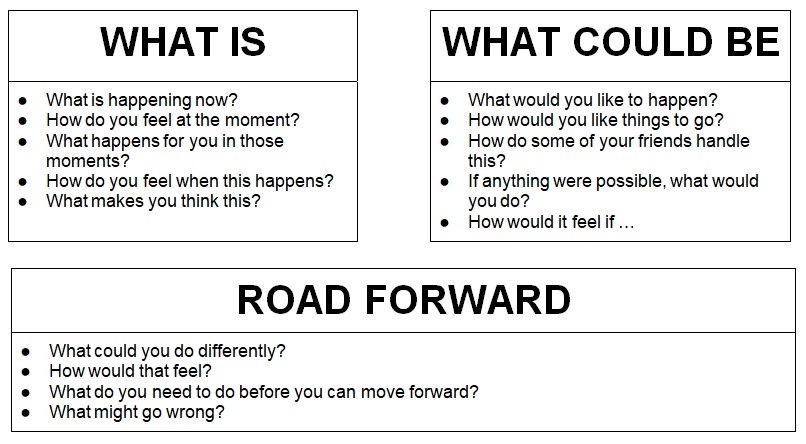A Coaching Model By Rob Street, Education Coach, HONG KONG
The Road Forward
All coaching models aim to provide a framework that may assist clients in their journey. The coach will work around and through the model with the client to develop his or her ideas fully. The framework is useful as it provides the client with signposts to refer back to as the coaching journey continues. There are some common themes, including an analysis of the client’s
- current situation
- desired situation
- what is possible/not possible for the client
- action planning.
One classic model is GROW, which stands for Goal, Outcome, Options, Will, neatly representing the items above. Another is WOOP (Wish, Obstacle, Outcome, Plan). We can already see from these two examples that the order of the steps can differ from one model to another.
The Road Forward When Coaching Children
When coaching children we must consider the kinds of challenges children might face. This could include eating disorders, family discord, bullying, depression, and so on. Some of these more serious issues may be more suitable for other professionals, such as therapists. As a child and education coach, I expect to encounter children who are having continual problems with personal growth, parts of school life, or family discord. It is also the case that children often have a rather black and white worldview and as such may hold very tightly onto a limiting belief, without ever being able to analyze that belief. In many cases, they may not even realize there are other options. A large part of the coaching model with these children must be focused on revealing the limiting belief in the first place. This should be presented in a child-friendly format, as the tool itself should be co-owned by the client and coach. The model presented below is simple, accessible, and allows the coach and client to uncover, examine, and move past limiting beliefs toward growth. Included are sample questions the coach might expect to ask. They’re included to give a flavor, and would naturally change according to the specific case.
Road Forward 3-Step Model

Road Forward More Detailed Breakdown

The ‘Road Forward’ It Will Be Important to Keep the Child Grounded
In the ‘road forward’ it will be important to keep the child grounded. Children are used to satisfying adults with the ‘correct’ answer. It must be clear that the correct answer here belongs to the child, not the adult. For younger children, the adult may have to make a judgment as to what the child is capable of, but for older children, this must lie in the hands of the child. This is an important time to remain neutral – showing neither support nor opposition to the child’s idea, instead of challenging the child to make the action plan robust.
The model leans closely on standard coaching practices, as it should. The essence of coaching applies where – the child is the expert on him or herself and as such is best placed to work through any challenge. It’s doubly so because the child has likely already had ‘help’ from teachers and parents, and that help has not been effective. Giving the child agency in the entire process is vital.
Between now and the future lies the possible
Learn How to Create Your Own Coaching Model
Your Coaching Model reflects your values,
philosophies and beliefs and must communicate who you will coach
and the problems you will solve. Read more about creating your coaching model